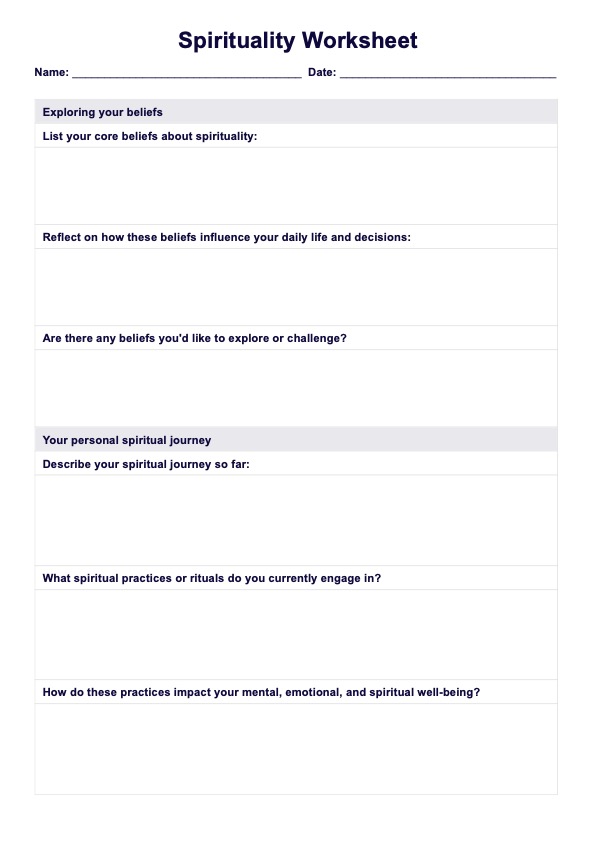Spirituality has been found to impact mental health and overall well-being positively. It provides individuals with coping skills, a sense of purpose and meaning, and a connection to something greater than themselves. For some, this may involve specific religious beliefs or practices, while for others, it may be more of a holistic approach encompassing one's values and beliefs.

Spirituality Worksheet
Get a free Spirituality Worksheet to help clients explore their spiritual beliefs and enhance their mental health. Learn more in this guide.
Spirituality Worksheet Template
Commonly asked questions
Many coping skills can promote spiritual growth, and the right ones will vary for each individual. Some examples include prayer, meditation, engaging in spiritual activities or rituals, connecting with nature, practicing gratitude and mindfulness, and exploring one's belief system through therapy or self-reflection.
A spirituality worksheet can be beneficial for clients in several ways. It can help them explore and understand their beliefs and values, reflect on the role of spirituality in their life, identify potential conflicts or struggles with their spiritual beliefs, set goals for spiritual growth, and develop positive habits that align with their values.
EHR and practice management software
Get started for free
*No credit card required
Free
$0/usd
Unlimited clients
Telehealth
1GB of storage
Client portal text
Automated billing and online payments











